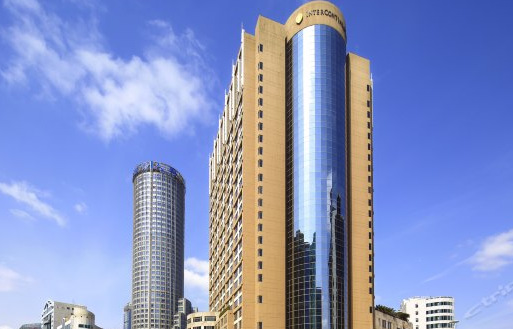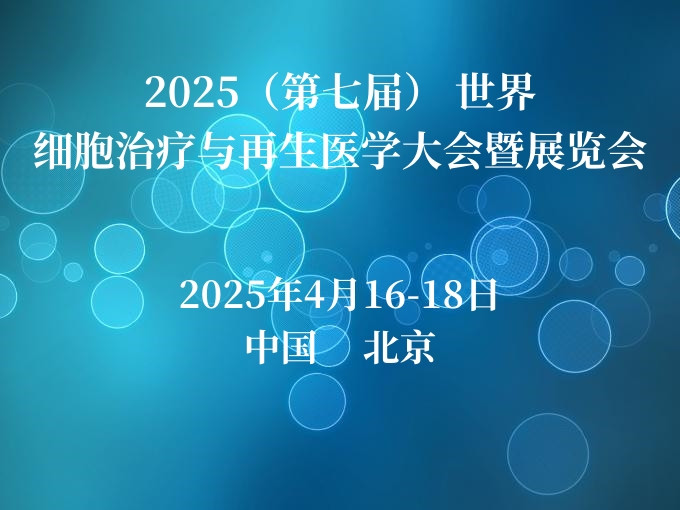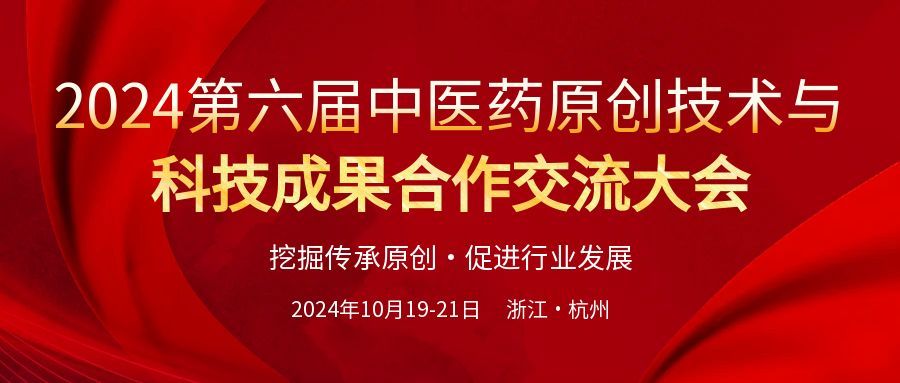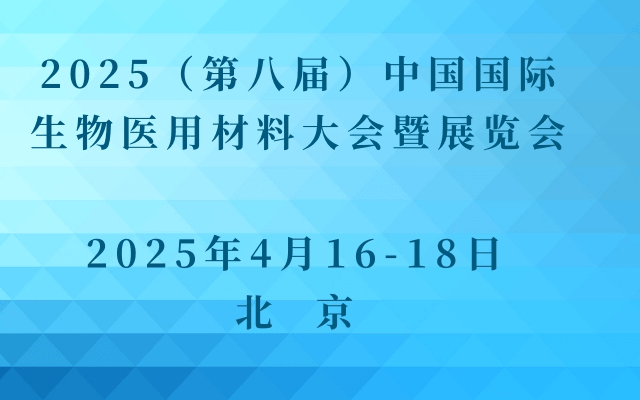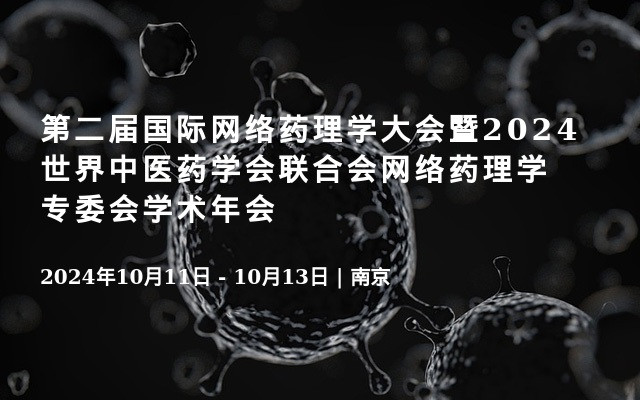2020亚太药物研发领袖峰会-细胞与基因治疗研发及生产工艺技术论坛

- 会议介绍
- 会议日程
- 会议嘉宾
- 参会指南
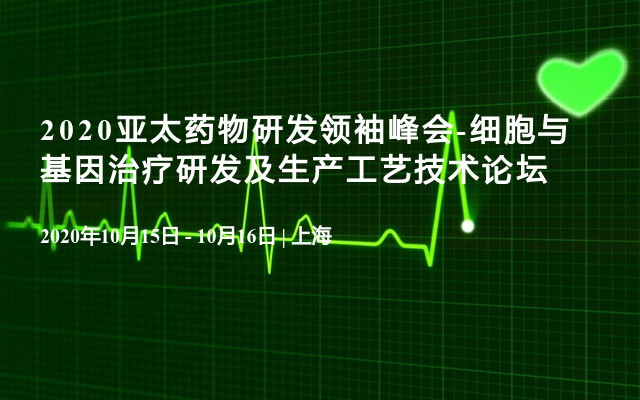
|
2020亚太药物研发领袖峰会-细胞与基因治疗研发及生产工艺技术论坛已过期 |
 会议日程
会议日程
(最终日程以会议现场为准)
Stephan Grupp, MD PhD, is the Chief of the Cellular Therapy and Transplant Section, Director of the Cancer Immunotherapy Program, and Medical Director of The Cell and Gene Therapy Lab at the Children’s Hospital of Philadelphia (CHOP), as well as the Yetta Dietch Novotny Professor of Pediatrics at the University of Pennsylvania Perelman School of Medicine.Dr. Grupp graduated from the University of Cincinnati after completing the MD/PhD program with a PhD in Immunology.He completed pediatric residency at the Boston Children’s Hospital, followed by a fellowship in Pediatric Hematology/Oncology at the Dana Farber Cancer Institute and postdoctoral work in Immunology at Harvard University. He then joined the faculty at Harvard University until 1996, when he came to CHOP. His primary area of clinical research is the use of CAR T and other engineered cell therapies in relapsed pediatric cancers. He led all of the pediatric ALL trials of CTL019 (now approved as Kymriah), including the largest and most successful engineered T cell therapy clinical trial conducted to date (1, 2), as well as the global registration trial for CTL019 (3). As a result of this work, he presented the Clinical Perspective at the July 2018 FDA ODAC meeting, at which reviewers voted 10-0 for recommendation of approval for Kymriah in pediatric ALL. His primary laboratory interest is the development of new cell therapy treatments for pediatric cancers. Dr. Grupp is a reviewer for several journals and the author of over 200 peer-reviewed journal articles, as well as numerous abstracts and book chapters.
Abstract: The approval of CAR-T cell therapy for ALL and NHL by FDA has led to increased academic and industrial interest for this therapy. The success of this promising therapy relies on reproducible manufacturing of high-quality clinical-grade CAR T cells. We have established a robust modular CAR-T manufacturing platform as well as a clinical grade retroviral vector manufacturing process, which allowed us to manufacture hundreds of CAR-T cell products and support 12 phase I/II CAR-T cell clinical trials successfully at our center. Over the years, we have made improvement of our existing manufacturing platform and tested new manufacturing procedures that supported the products meeting all critical quality attributes. We have generated T cells expressing CARs encoded by gammaretroviral vectors starting from either healthy donors or cryopreserved patient apheresis products using Prodigy. Moreover, the emergence of CRISPR-Cas and iPSC technologies has pointed new directions for CAR-T cell manufacturing.-- Define the central role of CAR-T cell manufacturing for the clinical applications of CAR-T cell therapies-- Summarize the current CAR-T cell manufacturing platforms (modular and continuous)-- MSK experience for CAR-T manufacturing and evolvement of our manufacturing platform-- Manufacturing of large-scale clinical grade retroviral vectors for CAR-T cell therapy-- Quality control for clinical grade retroviral vector and CAR-T cell manufacturing
Abstract: The BTI, at A*STAR has developed a Broad Technology Platform for Reprogramming, Expansion of Pluripotent Stem Cells and Differentiation to Cell Therapies. The IPS-SpheresTM technology is capable of automating the reprogramming of 4 different cell sources: T cells, haematopoietic stem cells, fibroblasts and mesenchymal stem cells into human induced pluripotent stem cells. From each reprogramming campaign, we can select up to 96 wells of clones to characterize and pick the best growing clone that can be cultured in suspension cultures and differentiated to target lineages.Using the microcarrier technology IPS-SpheresTM, BTi has been able to demonstrate production of neuroprogenitors and neurons at 10 million cells/ml. These neurons have been demonstrated to be functional in mouse and rat animal models of Parkinson’s disease with rapid recovery times within 3 to 6 months depending on the cell dose. Secondly, BTI has cardiomyocytes in a completely defined serum free media with 2 small molecules achieving 8 million cells/ml in a suspension bioreactor. Cardiomyocytes have been implanted in pig models of cardiac infarction. Most recently, BTi has manufactured CD34+ haematopoietic progenitors from hiPSC on this platform achieving 2 million cells/ml, these have been further differentiated to universal O negative Rhesus negative RBCs (17 million cells/ml.) and are being tested in animal models of acute anaemia. This platform is broadly available for scale up of pluripotent stem cell therapies to meet the global shortage of cells for therapies.
Sergio presently works as Associate Director RegCMC – Cell and Gene Therapy at Novartis. He is presently RegCMC representative for the development of several gene therapy and gene editing investigational medicinal products at different stage of development.From 2001 to 2016 he covered the position of Regulatory Affairs Manager in Molmed (Milan), where he lead RegCMC manufacturing, non-clinical and clinical development of more than 15 cell and gene therapy investigational medicinal products through their entire life cycle.In the position Sergio followed the development and registration of the three major cell and gene therapy products currently approved as well as the world-wide licensing program of Kymriah.He started his professional life with 1 year post-doctoral research in biochemistry, followed by 15 years of experience at Merck/Serono where he worked in a laboratory focussed on cell bank analytics and characterization.Formal education includes a MSc in Biology and a PhD in Biotechnology.
-- Fate is pioneering a revolutionary approach to cell therapy -- we use renewable master induced pluripotent stem cell (iPSC) lines generated from our proprietary iPSC platform to derive cell therapy product candidates that can be delivered off-the-shelf for the treatment of a large number of patients.-- Our cell therapy product candidate pipeline is comprised of immuno-oncology programs, including off-the-shelf NK- and T-cell product candidates derived from master iPSC lines.-- Discuss challenges in cell culture scale up for allogeneic cell therapies with iPSC technology
Dr. Harry Lam is currently Executive Vice President, Head of Technical Operations at JW Therapeutics. Previously, he was VP, Head of Biologics Manufacturing at Sanofi; VP, Manufacturing and Technical Operations, Progenitor Cell Therapy (PCT), A Subsidiary of Hitachi Chemical Advanced Therapeutics Solutions; and VP, Manufacturing and Process Development, at Shire Regenerative Medicine.Prior to Shire, Dr. Lam spent 17 years at Genentech, where he held a variety of positions with increasing responsibilities, including Director of Manufacturing & Technology, Genentech Singapore Pte Ltd; Senior Director, Global Head of Biologics Drug Substance Manufacturing Science & Technology; and Roche Global Head of Contract Manufacturing Operations, Commercial Drug Substance. Prior to joining Genentech, Dr. Lam spent 11 years at Pfizer in the Bioprocess R&D department.Harry received his B.S. in Chemical Engineering from the University of Birmingham, UK and his Ph.D. in Chemical Engineering from Rensselaer Polytechnic Institute, NY.
-- Unique Manufacturing Challenges for Autologous Cell Therapy-- IND to Commercial: A Paradigm Shift-- Development By Design-- Quality By Design-- Cell Therapy COGs Optimization-- IND to Commercial: Scale-out Challenge-- Cell Therapy Technology Road Map Vision-- Current Weakness in the Technology Landscape-- Final Thoughts
Richard received degrees of B.S of Cell Biology from the University of Science & Technology of China, Ph.D. of Molecular Biology from the University of Maryland, Baltimore and MBA from Xavier University, Cincinnati in the US. He obtained his post-doctoral training at the National Institutes of Health, Baltimore, USA.Richard now is the CEO of Fosun Kite Biotechnology. Taking a combined approach of internal R&D and external partnering/technology transfer, Fosun Kite is dedicated to the advancement of innovative cell therapy and its industrialization in China to benefit patients.Richard is very experienced in biopharmaceutical industry. Having spent close to 20 years in R&D and management positions in both the US and China, he has taken senior roles and increasing leadership responsibilities in Procter & Gamble Pharmaceutical, Bristol-Myers Squibb in the US, AstraZeneca Innovation Center and GSK R&D Center in China. Prior to Fosun Kite, Richard was the Chief Operation Officer of Cellular Biomedicine Group (NASDAQ: CBMG), where he was in charge of the company’s immunotherapy pipeline including manufacturing, clinical development and registration, and the stem cell business unit.
-- The Regulatory of Cell & Gene product in China: Poc or IND-- Key CMC strategy: manual & automatic system in PoC and IND-- the Aeon experience in fast translating FIC&FIH product in China
Mr. Liu formerly served as the Corporate Vice President at Alibaba Group responsible for Alibaba’s overseas investments. Since joining Alibaba in 2009, Tony held various positions including Corporate Vice President at B2B corporate investment, corporate finance, and General Manager for the B2C global e-commerce platform. He was also Chief Financial Officer for HiChina, a subsidiary of Alibaba, a leading internet infrastructure service provider.Prior to joining Alibaba, Tony spent 19 years at Microsoft Corporation where he served in a variety of finance leadership roles. He was the General Manager of Corporate Strategy looking after Microsoft’s China investment strategy and corporate strategic planning process. Tony was a key leader in the Microsoft corporate finance department during the 1990s as the Corporate Accounting Director. He was well recognized within Microsoft for driving an efficient worldwide finance consolidation, reporting, internal management accounting policy process, and showcased Microsoft’s best practices to many Fortune 500 companies in the U.S.Mr. Liu obtained his Washington State CPA certificate in 1992. He had been serving as an Independent Director and Chairman of the Audit Committee for CBMG since March 2013 and was appointed as Chief Financial Officer in January 2014. He was appointed as Chief Executive Officer of the Company in February 2016.
-- What China can bring to advancing the manufacture process in novel therapy modalities-- Manufacturing capabilities: addressing the “ Achilles heel “ of cell therapy-- The importance of strategic collaborations to improve manufacturing
Dr. Lin Yang is currently a Distinguished Professor at the Cyrus Tang Hematology Center of Soochow University, China, and an adjunct professor of Department of Lymphoma and Myeloma at the MD Anderson Cancer Center, USA. Dr. Yang is the founder/chairman/chief scientific officer of PersonGen BioTherapeutics (Suzhou) Co., Ltd., and Chairman/CEO of PersonGen-Anke Cellular Therapeutics Co., Ltd. Dr. Yang received many awards, including Innovation and Entrepreneurship Talent of Jiangsu Province, Six Peak Talent of Jiangsu Province, Gusu Innovation and Entrepreneur Leading Talent, Pioneer of Suzhou Industrial Park Technology, Nanjing “321” Technology Leaders, Second Prize of China Innovation and Entrepreneurship Competition, and many other honorary titles and awards. He has published more than 70 research articles in recognized peer reviewed journals, such as Cancer Cell, Cancer Research, Oncogene, JBC, and Cancer Science, etc., which were all funded by international, national and provincial foundations.As a principle investigator, Dr. Yang plays a major role in the immunotherapy of CAR-T cells and CAR-NK cells of China, and has obtained impressive achievements in the industrialization and clinical trials of CAR-T cell therapy. Among them, several clinical trials are the first-in human projects performed globally, including CAR-T cell therapy for T-cell acute lymphoblastic leukemia, and 4th generation CAR-T cell therapy for solid tumors. Led by Dr. Yang, PersonGen-Anke’s CD19-CAR-T product has been submitted to Chinese FDA and is being under the evaluation process which is expected an approval from CFDA within next few months.
Yajin ( Jenny ) Ni 博士高级总监, 工艺和产品开发, 技术运营, Allogene Therapeutics
联合创始人兼首席执行官, 颐昂生物Stephen Lim 博士首席执行官, 来恩生物医药
何霆 博士首席执行官, 北京艺妙神州医药科技有限公司Li Zhou 博士细胞疗法和抗体研究 副总裁, 绿叶制药波士顿研发中心
-- Overcome the viral vector supply bottleneck for the clinical development timeline-- Overcome the equipment capacity limitation for implementing a robust automated & closed processing-- How to manufacturing a large batch of allogeneic CAR T drug product with homogeneity and a robust post thaw recovery-- Overcome the starting cell source limitation & variation, how to secure an unlimited, identical, clean cells (free of human viruse infection) for allogeneic CAR T product manufacturing;
Stephan Grupp教授肿瘤科细胞治疗和移植科主任, 干细胞实验室的医学主任, 主治医师和肿瘤学研究员, 儿科教授, 费城儿童医院 (CHOP), 宾夕法尼亚大学佩雷尔曼医学院; 科学顾问委员会成员, 西比曼生物科技集团赵阳宾 教授细胞免疫疗法中心, T细胞工程实验室 主任, 美国宾夕法尼亚大学医学院Yoji Sato教授细胞治疗产品部主任兼首席科学家, 日本国立健康科学研究中心 NIHS
转换科学总监, 凯特制药, 吉利德科学子公司刘诚 博士创始人兼首席执行官, 优瑞科生物技术公司
Hermann Bohnenkamp 博士VP Business Development APAC
Silvio Weber 博士Head of the Industrial Process Development Team
-- Review how manufacturing processes can affect quality attributes of living drug products-- Considerations of a fully automated cell manufacturing process in the context of process transfer-- Assess industry collaboration strategies
Abstract: Exosome-based therapies are already in advanced clinical trials as many new applications beckon. This highlights a need for a simple effective purification platform that maximizes probability for clinical success and hastens the path to market. This presentation will share detailed case studies with extensive analytical support, illustrating a broadly applicable platform approach for purifying exosomes from all cell culture sources. Removal of host cell DNA, host proteins, virus, and endotoxins will be discussed.Exosomes are quickly evolving as next-generation candidates for regenerative therapy but manufacturing technology lags behind.-- The antibody industry demonstrated the value of a platform approach to purification. A similar approach is needed for exosomes.-- This presentation will describe a scalable platform that can be used as a cornerstone to purify exosomes from all cell cultures.-- It particularly focuses on removal of chromatin since chromatin interferes with both purification efficiency and product quality.-- New high throughput analytical methods combining multi-angle light scattering and immunofluorescence will also be presented.
 会议嘉宾
会议嘉宾
温馨提示酒店与住宿:为防止极端情况下活动延期或取消,建议“异地客户”与manbext客户端下载客服确认参会信息后,再安排出行与住宿。退款规则:活动各项资源需提前采购,购票后不支持退款,可以换人参加。
.png)


